If you’re new here, you may not know that our 11-year-old son has food allergies and asthma. Those two conditions often go hand in hand from an immunology perspective. Thanks to his pediatrician, we’ve been able to manage both conditions with only a few hiccups. A.J. has never been sent to the hospital for his allergies, but we have had a good many visits to urgent care and the pediatrician. After a few years off from testing A.J.’s food allergies, we recently went back to the pediatric allergist to see if he’d outgrown any of them. My husband and I absolutely love seafood, but A.J. hasn’t been able to partake since he’s allergic. I’ll walk you through some of the things to expect at your child’s pediatric allergist appointment and provide some resources below. This is intended for background information, not professional medical information. I encourage you to call your family doctor or pediatrician.
Your Child’s Pediatric Allergist Appointment
Stop taking allergy medication. To truly test how your child is affected by food and seasonal allergies they need to take a break from their allergy medication. For example, A.J. is really irritated by Georgia’s pollen, but he had to take a break from his seasonal allergy medications, specifically antihistamines. Your pediatric allergist office staff will explain exactly what you need to do before your appointment and when to stop the medication.
Health Questionnaire. Be prepared to take a detailed health questionnaire even if you’ve been to this pediatric allergist before. They’ll want to know if anything has changed in your child’s medical history. If a specific food or interaction was severe, explain that in the health questionnaire.
You may have to print and complete the questionnaire before your appointment.
I’m all for limiting paperwork, so I was relieved when our pediatric allergist’s office electronically delivered the questionnaire. After answering a few questions via text, we were all set.
Skin Tests. These are often the focus of a visit to the pediatric allergist visit. Be prepared for a nurse or medical assistant to administer allergy skin tests. They’ll gently prick your child’s skin with allergens (tree nuts, egg, wheat, seafood, shellfish, and more) and mark each section with a pen or marker.
Expect your child to feel uncomfortable and itchy. I brought some Benadryl to the appointment for him to take as soon as the allergy test results were taken, but his pediatric allergist swooped in right after he tracked the results and gave A.J. the medication for some relief.
Now that he’s older, A.J.’s skin test was done on his forearm. Typically for infants and toddlers, the skin tests are done on their back so that they can’t reach them or scratch them. You’ll have to hold on to a bare-chested, itchy child while the staff does the skin test on younger children.
Blood Work. In addition to the skin tests, blood work could be ordered to confirm allergies and provide a better perspective on how severe they are. Our pediatric allergist sent us to a nearby laboratory right after our appointment.
If your child is uncomfortable with needles, like A.J., be prepared for some tears. The phlebotomist who took A.J.’s blood did her best to calm his nerves and used a numbing spray at the skin puncture point, but he was still upset with just the thought of needles.
Follow-up calls. Our pediatric allergist called about two weeks after our visit with updated information on A.J.’s allergies. As much as we’d hoped that he would have outgrown some of his food allergies like he did when he was a toddler, nothing changed this time. Egg remains his lowest level allergy, but he must still avoid peanuts and seafood.
I’ve shared our food allergy experience including how to prepare for back-to-school with allergies and asthma, along with finding affordable epipen autoinjectors.
COMMENT BELOW: What are your questions about visiting a pediatric allergist? Leave them in the comments, so I can reply and use them for a follow-up blog post.
Pediatric Food Allergy Resources
Here’s a list of my favorite resources for managing your family’s food allergies:
 Mommy Talk Show Candid Conversation with a TV Mom
Mommy Talk Show Candid Conversation with a TV Mom
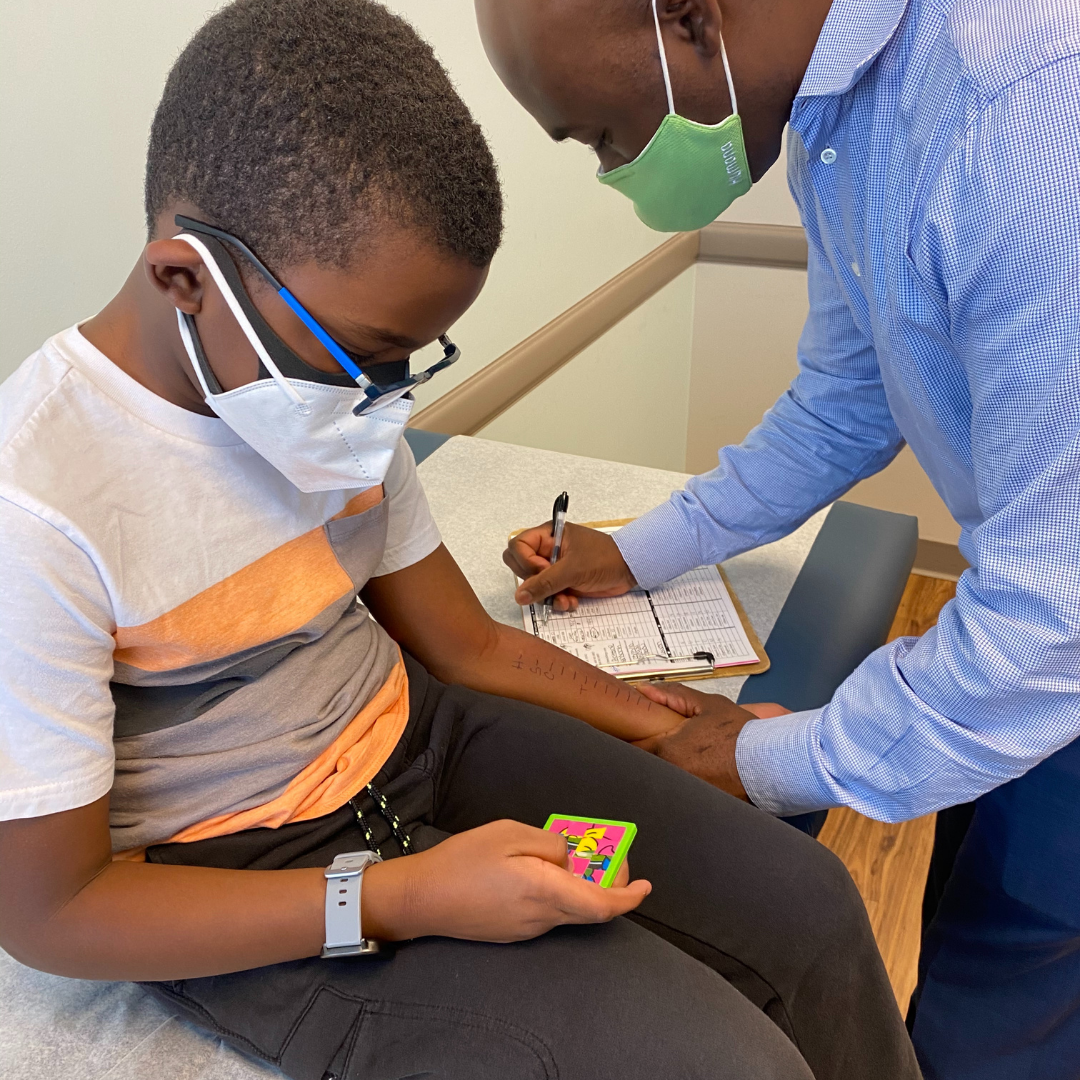
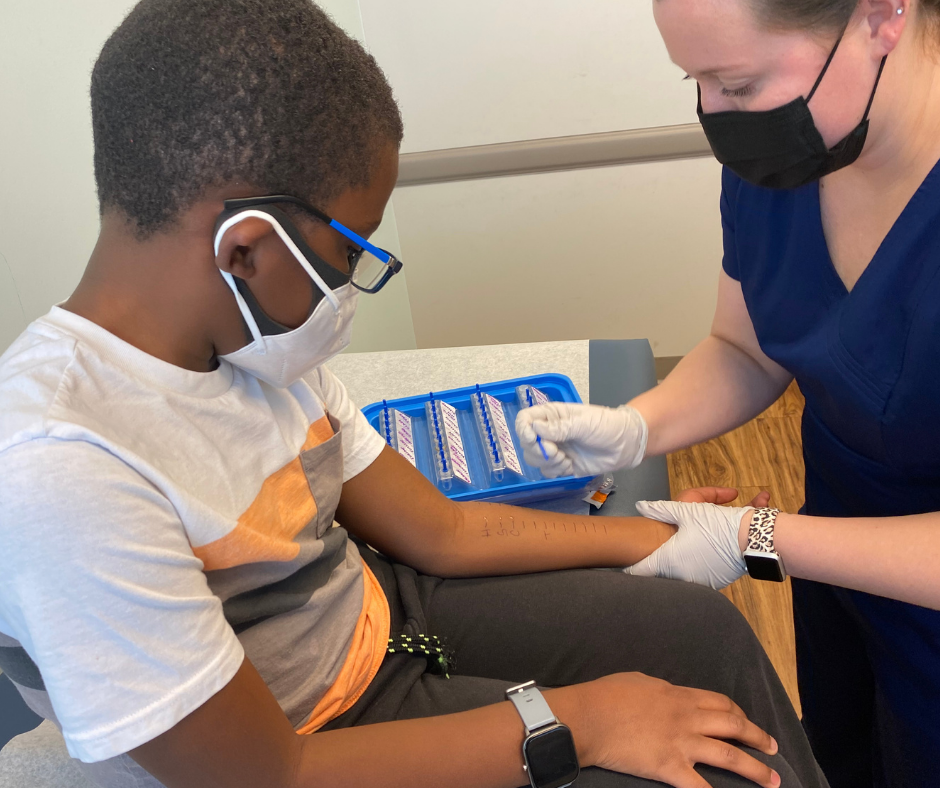
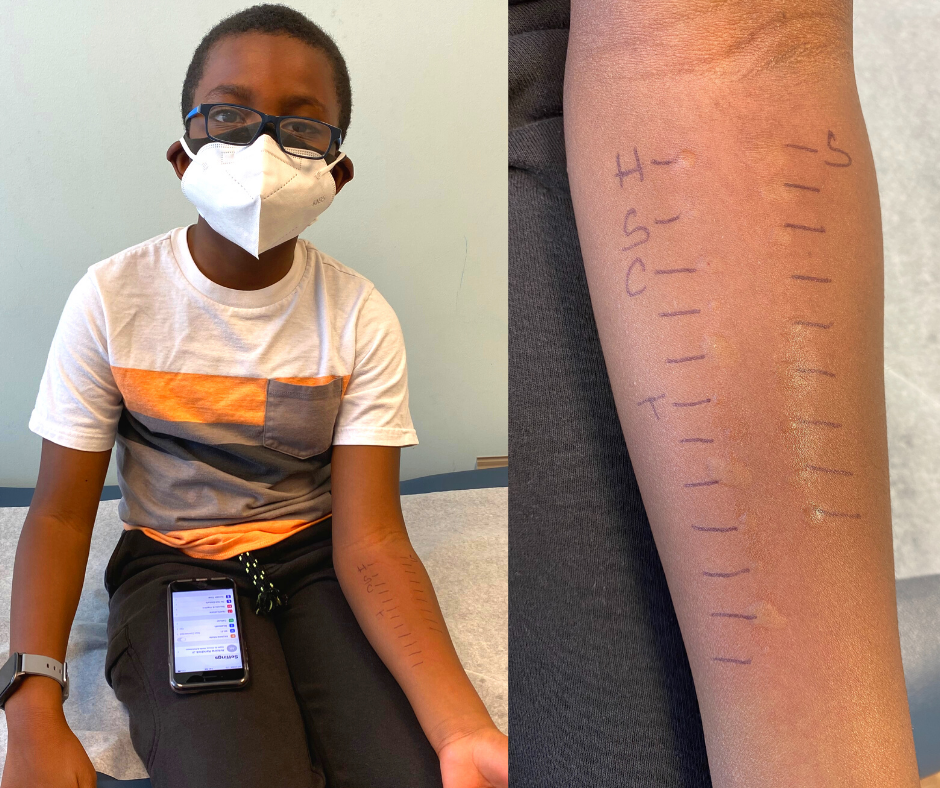
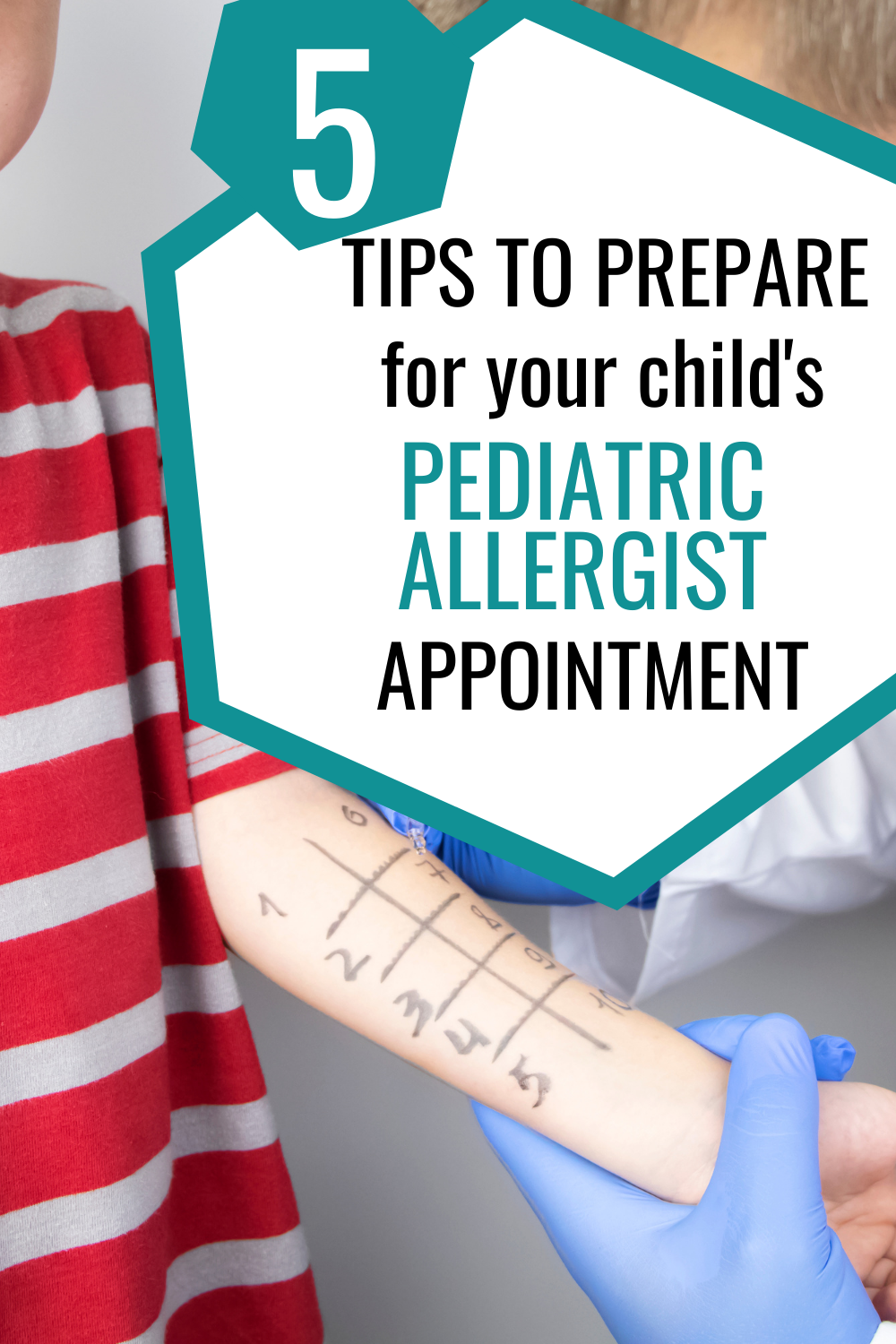
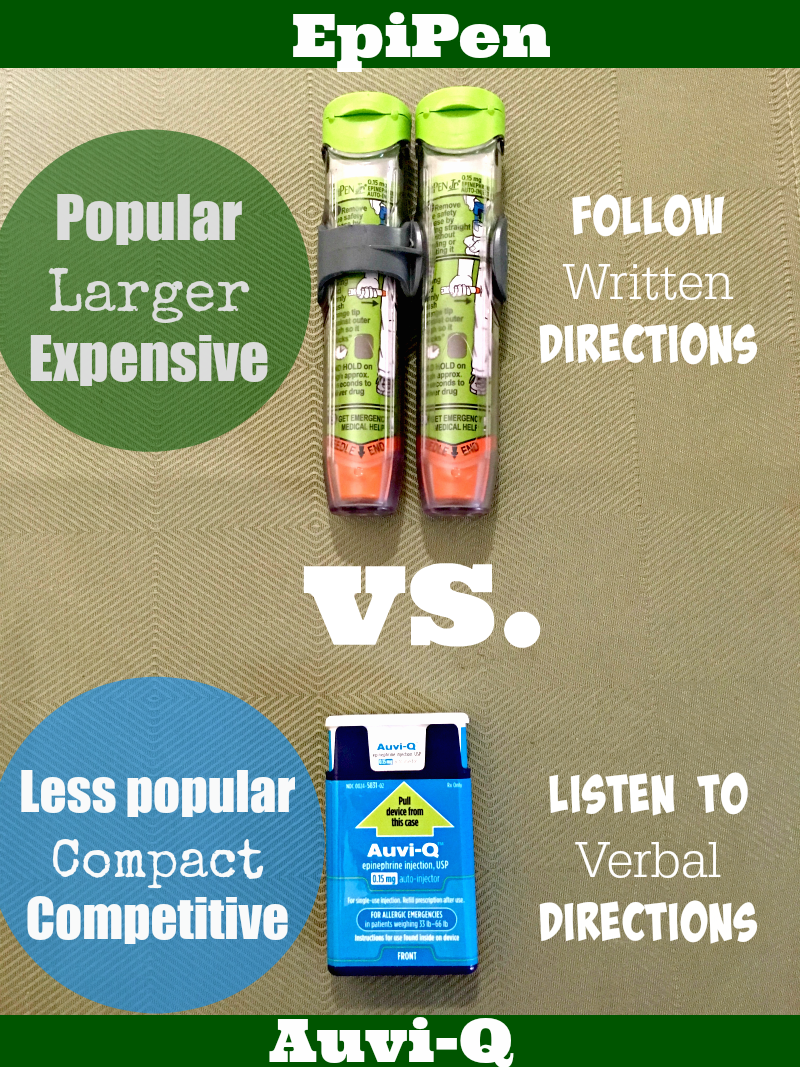



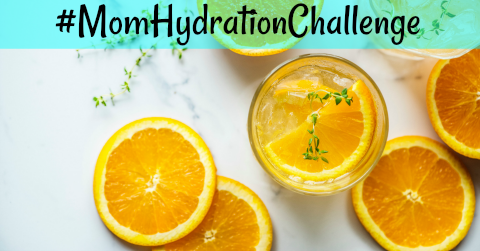
Way to go AJ! I’d love to know what the chances are if either of my allergy kids outgrowing any of their allergies. I’ve heard that anaphylaxis reactions indicate a smaller likelihood of outgrowing where a GI reaction might indicate otherwise